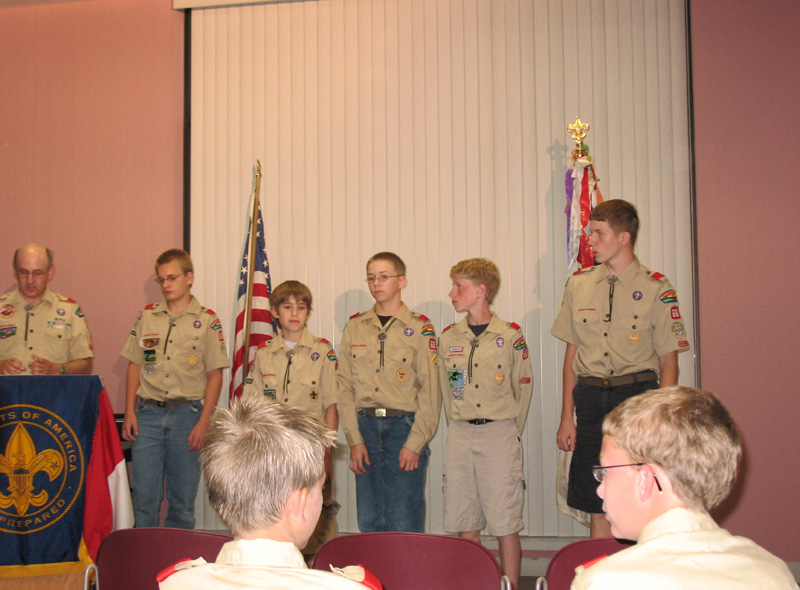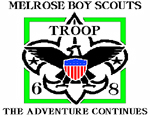 The first requirement for the ranks of Star, Life, and Eagle is to be active in your troop and patrol for at least 4 or 6 months as the previous rank. This is a pretty vague requirement and can be one that troop leadership can struggle with sometimes. What does it mean to “be active” in the troop and patrol?
The first requirement for the ranks of Star, Life, and Eagle is to be active in your troop and patrol for at least 4 or 6 months as the previous rank. This is a pretty vague requirement and can be one that troop leadership can struggle with sometimes. What does it mean to “be active” in the troop and patrol?
The national BSA website states:
“A Scout is considered to be active in his unit if:
- He is registered in his unit (registration fees are current).
- He has not been dismissed from his unit for disciplinary reasons.
- He is engaged by his unit leadership on a regular basis (Scoutmaster conference, informs the Scout of upcoming unit activities, through personal contact, and so on).
The unit leaders are responsible for maintaining contact with the Scout on a regular basis. The Scout is not required to attend any certain percentage of activities or outings. However, unit leaders must ensure that he is fulfilling the obligations of his assigned leadership position. If he is not, then they should remove the Scout from that position.”
Okay, that made things crystal clear, didn’t it? I think that statement made things even more confusing for scoutmasters and troop leaders. Let me explain my view on this BSA statement.
If you read this as the “letter of the law”, a Scout only needs to be registered to “be active”. He does not need to attend any troop meetings or troop activities. It seems to be the scoutmaster’s and unit leadership’s job to contact him and tell him what the troop has coming up, but gosh, he does not need to attend them. Um, excuse me National Office, but how is a Scout to be considered active if he does not attend meetings and outings? (Keep in mind, I am only writing about being active, not about his position of responsibility.)
I understand National’s statement of “The Scout is not required to attend any certain percentage of activities or outings.” Every Scout is not going to make every meeting or activity. A youth in Scouting is usually active in other groups and activities. If he is in sports then practice and games will conflict with Scouting. Family schedules conflict with Scouting. Even homework can get in the way of attending a troop meeting. So yes, I agree that we cannot impose a percentage requirement on attendance.
When I meet with new Scouts, and Scouts during their Scoutmaster’s Conference, I tell the boys, and parents, that I would like them to set a goal of attending at least two thirds of the troop meetings and at least half of the outings. This is a goal, a guideline, for the boys to follow. An example – I have had several Scouts over the years that have been involved in high school hockey. They sort of disappear from Scouting during those three months of the season. But they still try to make meetings and activities when they are able to. This is a sign to me that they want to be active in the troop. Once the season is over they return to the regular schedule. I can live with that.
According to this statement from National, it seems that a Scout would never have to attend a meeting or activity to qualify as being active in the troop. Sorry, but I do not agree with that. It is not fair to the boys who are active in the troop. A Boy Scout must make an attempt to attend meetings and activities. Would a coach allow a player to play in the game if he never showed up for practice? Would the the school allow a student to letter in an activity if he did not participate in that activity? Would an employer keep employing a young man if he did not show up for work when he was scheduled? No, no, and no.
Part of the Scouting program is to teach the boys responsibility. A Scout needs to attend troop functions, or at least make a good attempt to do so. If a Scout does not want to actually be active in the program then he needs to make a decision whether to continue his membership. Sorry National, I am not signing off a boy just because he is registered and because I talk to him a few times. A Scout will need to attend troop meetings and functions, not just meet with merit badge councilors, if I am to sign my name to that advancement form.


Steve,
You have misunderstood what the BSA is explaining to you. These are the measurable conditions that must be met for a scout to be considered active in his troop or patrol. Had you also reprinted the next passage where the BSA explains the leaders responsibility then the rest of what you printed becomes irrelevant.
It says…“The unit leaders are responsible for maintaining contact with the Scout on a regular basis. The Scout is not required to attend any certain percentage of activities or outings. However, unit leaders must ensure that he is fulfilling the obligations of his assigned leadership position. If he is not, then they should remove the Scout from that position.”
A Scout can only advance if he meets the requirements. If he is not active in the unit and the Scoutmaster allows him to stay in the leadership role and complete the advancement then the problem is the Scoutmaster, not the Scout.
The BSA is telling you that if the scout is not registered, or has been dismissed for disciplinary reasons, or has been kept informed of troop and patrol activities but still does not fulfill his leadership responsibilities then he does not meet the advancement requirement for Active in the Troop or Patrol.
You cannot set attendance requirements for Boy Scout Ranks, but you can require the scout to meet his leadership and membership responsibilities, or you can remove him from the position or the roster.
Can a Scout never attend a meeting or activity and either stay a member of the troop or advance? Only if you let him.
Nothing in the BSA requires that you do so, it’s just that you can’t manufacture a requirement that does not exist.
You are correct. I wrote what I did based solely on the “active” portion of the statement, leaving the “leadership” portion out since leadership is covered under a separate requirement.
I agree that using the two together insures that a Scout will complete both requirements. I wanted to make a point that I think National could have written it better then they did. If the “leadership” portion of the statement is all we have to fall back on to insure that a Scout is active, then do we need the requirement of “being active in the troop and patrol” as a separate requirement?
Do you see my point?
I do not wish the BSA to set a “percentage” standard on this requirement. Every Scout and every family is different and we as leaders need to recognize this. I just wish the National statement would have been written better then it was.
Amen Brother!
I won’t sign off that either.
Registration means he paid dues and maybe is getting Boy’s Life.
Not good enough to be Boy Scout and one day an Eagle Scout.
Not good enough. If we are just going to give it away than why do it?
Active Participant means Active.
Thank goodness the Scoutmasters get a vote on that one.
It really is kind of a Cart before the horse argument though. If he is not active than he more than likely is not going to be in a leadership position and not earning Merit Badges, and so on and so on…
I think you are right here.
Keep up the nice work. Really enjoy it.
Well, Steve, as you might suspect the BSA only cares that they are registered, so they are encouraging you to do that. They do not care whether the boy contributes anything to the unit. (But I certainly do!)
In a recent district decision here, they awarded an Eagle to a boy that had not attended any troop meeting in over a year. The absence was for part-time job and sports. His leadership “job,” Historian, was done on his computer from home.
I won’t defend the BSA on this one, and my Scouts have to be ACTIVE. My definition is that I know they will miss some things, but the troop should know why he is absent, and any leadership reponsibility must still be met by hiring another Scout to fill in.
-Byron C. Justice, Troop 1197
author of HAUNTED CAMPS